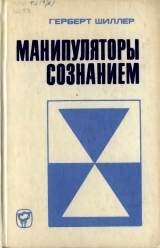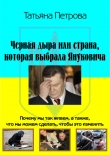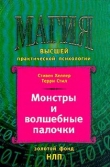
Текст книги "Манипуляторы сознанием"
Автор книги: Герберт Шиллер
Жанры:
Политика
,сообщить о нарушении
Текущая страница: 23 (всего у книги 24 страниц)
Примечания и библиография
Часть IПредисловие
1 Paulo Freire. Pedagogy of the Oppressed. New York, 1971, p. 144.
2 Ibid., p. 145.
3 Gore Vidal. Homage to Daniel Shays. – "The New York Re– view of Books", 10 August 1972, p. 12.
Глава первая
1 Alan Lomax and Norman Berkowitt. The Evolutionary Taxomony of Culture. – «Science 177», 1972, p. 238.
2 С. В. MacPherson. The Political Theory of Possessive Individualism. Oxford, 1962.
3 Frank Stanton. Will They Stop Our Satellites? – "New York Times", 22. X. 1972.
4 Генри Люс, основатель журналов "Тайм", "Лайф", "Форчун", "Спортс иллюстрейтед" и других массовых изданий, имел на этот счет другое мнение. Он заявил, обращаясь к сотрудникам "Тайма": "Мнимая журналистская объективность, т. е. утверждение, что автор подает факты без какой-либо ценностной оценки, является современной выдумкой, не более чем обманом. Я это отвергаю и осуждаю. Мы говорим: "К дьяволу объективность"». (W. А. Swandberg. Luce and His Empire. New York, 1972, p. 331.)
5 Daniel Bell. The End of Ideology, 1960.
6 Leon Etsenberg. The Human Nature of Human Nature. – "Science 176", 1972, pp. 123—124.
7 "The Social Engineers Retreat Under Fire". – "Fortune", X. 1972, p. 3.
8 Leon Etsenberg. "Human Nature...", p. 124.
9 Paulo Freire. Pedagogy of the Oppressed, p. 135.
10 Les Brown. Television: The Business Behind The Box. New York, 1971, pp. 196-203.
11 Paulo Freire. Pedagogy of the Oppressed, p. 137.
12 "Black Movie Boom – Good or Bad?" – "New York Times", 17. XII. 1972.
13 George Gerbner. Communication and Social Environment. – "Scientific American" IX. 1972, p. 156.
14 Les Brown. Television..., pp. 59—60.
15 Robert Musel. Through a Glass – very darkly. – "TV Guide", 2. X. 1971, p. 12.
16 Merrill Panitt. America Out of Focus. – "TV Guide", 15, I. 1972 – 12. II. 1972.
17 Paulo Freire. Pedagogy of the Oppressed, pp. 137—138.
18 Langbourne W. Rust. Do Children Prefer Junk cm TV? – "Variety", 13. X. 1972, p. 38.
19 Hedrick Smith. Big Issues Block U. S. – Soviet Trade. – "New York Times", 12. VIII. 1972.
20 "New York Times", 26. VII. 1972.
21 Rudolph Arnheim. Television as a Medium. – "Performance", N 3, 1972, p. 16.
22 Fred Friendly. Due to Circumstanses Beyond Our Control. New York, 1967, pp. 27, 59—60.
23 Martin A. Jackson. Review of "The American Newsreel, 1911– 1967". – "New York Times Book Review", 6. VIII. 1972, p. 4.
Глава вторая
1 "New York Times", 23. I. 1970.
2 Paul Dickson. Think Tanks. New York, 1971, p. 7.
3 "Los Angeles Times", 17. VII. 1972.
4 "Broadcasting", 17. VII. 1972, p. 29.
5 "Variety", 12. VII. 1972, p. 34.
6 Совет по проблемам политики и планирования правительственной информации провел свое первое заседание 28 апреля 1972 г. под председательством директора Управления по поли– тике в области телекоммуникаций Клея Уайтхеда. Состав совета подтверждает тезис о тесной связи правительственной политики в области информации с господствующими военными и частными корпоративными блоками страны. В состав совета входили: помощник государственного секретаря по делам администрации, помощник министра обороны, помощник министра торговли по делам на– уки и техники, помощник министра транспорта, заместитель директора ЦРУ, специальный уполномоченный по делам транспорта и коммуникаций Администрации общих служб, помощник замести– теля директора НАСА. Telecommunications Reports 38", N 16, 24. IV. 1972, p. 23.
7 U. S. Bureau of the Census. Statistical Abstracts of the United States. Washington, 1971, p. 509.
8 Nicholas Wade. NBS Loses Branscomb to IBM. – "Science", 14. IV. 1972, p. 147.
9 Donald Stevenson Watson and Mary A. Holman. Concentration of Patents from Government Financed Research in Industry.– "Review of Economics and Statistics 49", N 3, VIII. 1967, pp. 375—381.
10 Dickson. Think Tanks, p. 10.
11 J. E. Goldman. Toward a National Technology Policy. – "Science", N 2, IX. 1972, p. 1079.
12 Harry Ноше Ransom. The Intelligence Establishment. Cambridge, 1970, p. 8.
13 U. S., Congress, Senate, Subcommittee on Constitutional Rights, Committee on the Judiciary. – "Army Surveillance of Civilians: A Documentary Analysis". Washington, 1972, pp. 96—97.
14 U. S., Congress, Senate, Subcommittee on Constitutional Rights, Committee on Judiciary. —"Staff Report", IV. 1972, p. 4.
15 U. S., Congress, House. Hearings before a Subcommittee of the Committee on Government Operations, III. 1972, p. 1285. (Да– лее – The Moorhead Hearings.)
16 Ransom. The Intelligence Establishment, p. 88.
17 "Intelligence Costs for Military in '70 Put at $ 2. 9 Billion". – "New York Times", 14. V. 1970.
18 Benjamin Welles. Nixon Reported Weighing Revamping of Intelligence Services. – "New York Times", 11. V. 1971.
19 The Moorhead Nearings, p. 1033.
20 Carol M. Barker and Matthew H. Fox. Classified Files: The Yellowing Pages. New York, 1972, p. 15.
21 "Cost Twice as High to Conceal as Reveal". – "Los Angeles Times", 16. V. 1972.
22 Robert S. Semple. Nixon Vetoes Bill to Fund Public TV. – "New York Times", I, VII. 1972.
23 "Действия Никсона позволили его администрации добиться двух целей: (1) выхолостить общественное телевещание – скромную, но развивающуюся образовательную телесеть и (2) расстроить направленную на службу общественности деятельность образовательного телевидения". "Politics in Public Broadcasting". – "Los Angeles Times", 25. X. 1972.
24 Fred Powledge. Public Television: A Question of Survival. New York, 1972.
25 Bill Greely. Deem СРВ as a White House 0 & 0 Via Loomis and Other Appointments. – "Variety", 27. IX. 1972; 20. XII. 1972.
26 Alan Wells. Picture – Tube Imperialism? New York, 1972, p. 96.
27 Ibid.
28 U. S., Congress, Senate, hearings before a subcommittee of the Committee on Appropriations. Washington, 1971, pp. 815—820.
29 John J. O'Connor. U.S.I.A. Propaganda. – "New York Times" I IV 1972.
30 John W. Finney. U.S.I.A. Confirms Role in Unattributed Pamphlets. – "New York Times", 22. III. 1972.
31 Bernard Gwertzman. U. S. Radio Abroad Wins Senate Test. – "New York Times", 8, VI. 1972.
32 James Aronson. The Press and the Cold War. New York, 1971.
33 Bernard Gwertzman. U. S. Radio Abroad Wins Senate Test. – "New York Times", 8, VI. 1972.
34 Erik Barnouw. The Image Empire. New York, 1970, pp. 91—92.
35 Hillier Krieghbaum. Pressure on the Press. New York, 1972, p. 210.
36 Susan Wagner. Publishing on the Potomac: The Selling of the Government. – "Publishers' Weekly", 9. VIII. 1971, p. 28.
37 Krieghbaum. Pressures on the Press, p. 210.
38 J. William Fulbright. The Pentagon Propaganda Machine. New York, 1970.
39 U. S., Congress, House, Committee on Government Operations. – "Administration of the Freedom of Information Act", report N 92—1419. Washington, 1972, p. 60.
40 The Moorhead Hearings, pp. 1007—1008.
41 Ibid., p. 1056.
42 Ibid., pp. 1013-1014, 1047.
43 Ibid., p. 3019.
44 Ibid., p. 2997.
45 Член палаты представителей Lionel Van Deerlin, 17. XII. 1971.
46 "Broadcasting", 26. VI. 1972, pp. 43, 46.
47 The Moorhead Hearings, p. 3023.
48 Ibid., p. 3059.
49 "GQ Fact Sheet on Committee Secrecy". – "Congressional Quarterly", 12. II. 1972, p. 301; "Committee Secrecy: Still Fact of Life in Congress". – "Congressional Quarterly", 11. XI. 1972, p. 2974.
50 "U. S. Congress, House, Committee on Government Operations, Freedom of Information Act. Washington, 1968.
51 James Reston. Washington: The New "War Profiteers". – "New York Times", 3. V. 1968.
52 The Moorhead Hearings, p. 3061.
53 David Wise. The Institution of Lying. – "New York Times", 18. XI. 1971.
54 Barker and Fox. Classified Files, p. 60.
55 The Moorhead Hearings, p. 1040.
56 "Government Easing Attitude Towards Private Enterprise In Use of Federal Information", – "Publishers' Weekly", 12. IV. 1971, p. 27.
57 Ibid.
58 Ibid., p. 28.
59 The Moorhead Hearings, p. 3129.
Глава третья
1 Fritz Machlup. The Production and Distribution of Knowledge in the United States. Princejbon, 1962.
2 "New York Times", 10. I. 1972.
3 "Education Industry Is Marketing ABC's". – "New York Times", 10. III. 1972.
4 M. Marten. Notes on the Education Complex as an Emerging Macro-System, Global Systems Dynamics International Symposium, Charlottesville, 1969. New York, 1970, pp. 225—244.
5 David M. Shoup. The New American Militarism. – "The Atlantic 223", N 4, IV. 1969, pp. 51—56.
6 Clark M. Clifford. Address before the National Security Industrial Association. Washington, 26. IX. 1968.
7 Lawrence S. Wittner. IBM and the Pentagon. – "The Progressive", II. 1972, pp. 33-34.
8 Ibid.
9 Mildred Benton and Signe Ottersen. Roster of Federal Libraries. Washington, 1970.
10 "Я утверждаю, что министерство обороны, ведомство, потребляющее 9% валового национального продукта, ведомство, на службе у которого находится четыре с половиной миллиона американцев, должно больше чем когда бы то ни было способствовать удовлетворению социальных потребностей страны. Законность... внутреннее спокойствие... всеобщее благосостояние... дары свободы. Может ли быть, чтобы все эти элементы свободы ложились на плечи правительства Соединенных Штатов, минуя министерство обороны, на чью деятельность расходуется половина всех затрат нашего правительства?" (Clark M. Clifford, op. cit.).
11 Fred M. Heddtnger. Address before the 13th Annual Summer Conference of the Pennsylvania School Boards Association, 15. VII. 1967. – "Newsletter" of the Pennsylvania Electronics Technology» Inc. 68—3, p. 4.
12 "Phi Delta Kappan", V. 1967, 417.
13 Samuel Halperin. Things Don't Just Happen. – "Congressional Record", 20. II. 1968, p. E 981.
14 "Publishers Weekly", 19. II. 1973.
15 "Fortune", V. 1972, p. 149.
16 "New York Times", 11. II. 1972, p. 49.
17 J. Myron Atkin. The Federal Government, Big Business, and Colleges of Education.
18 "New York Times", 14. VII. 1968.
19 James A. Mecklenburger and John A. Wilson. Learning C.O.D. Can the Schools Buy Success? – "Saturday Review", 18. IX. 1971, p. 76.
20 "Los Angeles Times", 1. II. 1972.
21 "Los Angeles Times", 28. VII. 1972.
22 "Publishers' Weekly", 8. II. 1971.
23 John. D. Williams. Conglomerates Cause An Information Loss. – "Wall Street Journal", 29. XII. 1972.
24 William F. Luebbert. Instructional Technology, Education and Man as a Builder and User of Tools. – International Symposium on Communication, Univ. of Pennsylvania, 111» 23—25, 1972.
Глава четвертая
1 Erik Barnouw. Television as a Medium. – «Performance», N 3, 1972, p. 13.
2 Ibid., p. 40.
3 Franc Shor. Pacific Fleet: Force For Peace. – "National Geographic", IX, 1959, pp. 283—335.
4 "Broadcasting", 14. VIII. 1972, p. 39.
5 Les Brown. Television: The Business Behind the Box. New York, 1971, p. 59.
6 "New York Times", 27. XI. 1972.
7 James Playsted Wood. Magazines In the United States. New York, 1971, p. 291.
8 Ibid., p. 292.
9 Ibid., p. 291.
10 "New York Times", 31. VII. 1967.
11 "As We See it". – "TV Guide", 22. VII. 1972, p. 1.
12 Max Gunther. Revolution at the FTC. – "TV Guide", 24. VI. 1972. pp. 27—28.
13 John C. Schwarzwalder. Public Broadcasting Must Clean House. – "TV Guide", 30. IX – 6. X, 1972.
14 Merill Panitt. America Out of Focus. – "TV Guide", 15. I. – 12. II., 1972.
15 Ibid.
16 "Advertizing Age", 24. IV. 1972, p. 22.
17 "Advertizing Age", 3. VII. 1972.
18 Tom Buckley. With the National Geographic on Its Endless, Cloudless Voyage. – "New York Times Magazine", 6. IX. 1972.
19 Frank Luther Mott. A History of American Magazines. Cambridge, 1957, p. 626.
20 "National Geographic Society Elect Key Executives". – "National Geographic", X, 1967, p. 576.
21 M. B. Grosvenor. National Geographies Newest Adventure: A Color Television Series. – "National Geographic", X, 1965, p. 451.
22 Tom Buckley. With the National Geographic..., p. 22.
23 Mott. History of American Magazines, p. 625.
24 Volkman Wentzel. Mozambique, Land of the Good People. – "National Geographic", VIII. 1964, pp. 214—215.
25 Jules В. Вllard. Panama, Link Between Oceans and Continents. – "National Geographic", III. 1970, p. 404.
26 Ibid., p. 412.
27 Buckley. "With the National Geographic...", p. 18.
28 Wentzel. Mozambique..., pp. 203—204.
29 Buckley. With the National Geoff rap hie..., p. 18.
30 Peter T. White. Saigon, Eye of the Storm. – "National Geographic", VI. 1965, p. 862.
31 Peter T. White. Mosaic of Cultures. – "National Geographic", III. 1971, p. 329.
32 Wilhelm G. Solheim II. New Light On a Forgotten Past. – "National Geographic", III. 1971, p. 330.
33 Buckley. With the National Geographic..., p. 20.
34 W. E. Garrett. Pagan On the Road to Mandalay. – "National Geographic", III. 1971, p. 349.
35 Franc Shor. Pacific Fleet..., p. 283.
36 "National Geographic", VI. 1972, cover.
37 Franc Shor. Pacific Fleet, Dp. 283, 311.
38 Thomas W. Mс Knew. Four Ocean Navy in the Nuclear Age. – "National Geographic", II. 1965.
39 "National Geographic", IX. 1965.
40 "Magazines for Libraries". New York, 1969, p. 169.
41 Buckley. With the National Geographic..., p. 12.
42 "Fortune", VI. 1972, p. 110.
43 "Nation's Business", III. 1971, pp. 46, 49.
44 Leo E. Litwak. Fantasy That Paid Off. – "New York Times Magazine", 27. VI. 1965.
45 Richard Schickel. The Disney Version. New York, 1968, p. 19.
46 Ibid., p. 165.
47 Предварительное письмо к держателям акций и служащим, "Уолт Дисней продакшнз", 24. IV. 1972.
48 Ibid.
49 Annual Report, Walt Disney Productions, 1971, p. 4.
50 Schickel. Disney Version..., p. 313.
51 Annual Report... p. 28.
52 Предварительное письмо к держателям акций и служащим, "Уолт Дисней продакшнз", 24. IV. 1972.
53 Dwight Whitney. It's Practically a Branch of the U. S. Mint. – "TV Guide*, 15-21, VII. 1972, p. 25.
54 "Disney's Live Action Profits". – "Business Week", 24. VII. 1965, p. &2.
55 Schickel. Disney Version..., p. 164.
56 Litwak. "Fantasy", p. 28.
57 "Los Angeles Times", 16. XII. 1966.
58 Robert Shayon. Entertainment. – "Performance", N 3, VII/VIII, 1972, p. 91.
59 Annual Report..., p. 21.
60 Ariel Dorfman and Armand Mattelart. Para Leer Al Pato Donald. Valparaiso, 1971.
61 A. Mattelart. Mass Media In the Socialist Revolution; The Experience of Chile. – Communications Technology and Social Policy. New York, 1973.
62 "Los Angeles Times", 1. VI. 1972.
63 Дисней сказал однажды: "У меня не бывает подавленного настроения, и я не хочу, чтобы оно у меня появилось. Я счастлив, просто очень, очень счастлив". (/. Anthony Lukas. "The Alternative Life – Style of Playboys and Playmates", – "New York Times Magazine", 11. VI. 1972.).
64 Litwak. Fantasy, p. 27.
65 M. B. Grosvenor. Walt Disney. Genius of Laughter and Learn– ing. – "National Geographic", VIII. 1963, p. 158.
66 Mott. A History of American Magazines, p. 632.
67 James L. C. Ford. Magazines for Millions, Carbondale, 1969, pp. 57—58.
68 "Reader's Digest at the White House". – "New York Times", 29. I. 1972.
Глава пятая
1 Harwood L. Childs. Public Opinion: Nature, Formation and Role. Princeton, 1965, p. 1.
2 Marshall A. Caskey. Polls: Critics and Proposed Controls, Freedom of Information Center Report N 220. Columbia, 1969, p. 3. Предположительно насчитывается тысяча американских фирм по опросу общественного мнения. (Stephen Isaacs. The Pitfalls of Polling", Columbia Journalism Review, V/VI. 1972, p. 34.)
3 Erik Barnouw. A History of Broadcasting. New York, 1968.
4 Paul F. Lazarsfeld. Some Problems of Organized Social Research. – "The Behavioral Sciences: Problems and Prospects", Boulder, VIII, 1964, p. 11.
5 Paul B. Sheatsley. AAPOR Times 21. – "Public Opinion Quarterly" 32, 1968—69, p. 463.
6 Hadley Cantril. The Human Dimension: Experiences in Policy Research. New Brunswick, 1967, pp. 24—30—31.
7 Lazarsfeld, Some Problems, p. 11.
8 H. Cantril. Human Dimension, pp. 35—37.
9 George Gallup, Jr., "The Challenge of Ideological Warfare", in Propaganda and the Cold War. Washington, 1963, pp. 54—56.
10 Cantril. Human Dimension, Chs. 1, 2.
11 "Political Pollsters Head for Record Activity in 1968", Congressional Quarterly Fact Sheet, 3. V. 1968, p. 1000.
12 George Gallup, Jr. "Image of the United States Abroad in 1969: A Report", in The Case for Reappraisal of U. S. – Overseas Information Policies and Programs. N. Y., 1970, p. 18.
13 Richard L. Merritt. The USIA Surveys: Tolls for Policy and Analysis, in Western Europe arid Perspectives on International Affairs. New York, 1968, p. 6. Возможно, здесь применимы слова Пауло Фрейре: "В своем стремлении господствовать, переделать других сообразно собственным моделям и образу жизни захватчики хотят знать, как оценивают действительность завоеванные ими люди, но лишь для того, чтобы сделать свое господство еще эффективнее". (Paulo Freire. Pedagogy of the Oppressed, pp. 150—151.)
14 H. Cantril. Human Dimension, pp. 35—49. Кэнтрил пишет: "Очевидно, в демократии, подобной нашей, ни один президент не может добиться осуществления своей политики, пока народ не заинтересуется этой политикой и не поймет ее смысла" (р. 69).
15 Harold Mendelsohn and Irving Crespi. Polls, Television and the New Politics. Scranton, 1970, p. X.
16 Marylin Bender. Market Research. – "New York Times", 29. VIII. 1971. Jack J. Honomichl. Big Business Snaps Up 22 Top Research Firms. – "Advertizing Age", 20. X. 1971, pp. 1, 83.
17 Richard Hodder—Williams. Public Opinion Polls and British Politics. London, 1970, pp. 9—14.
18 Roper Research Associates. "A Ten—Year View of Public Attitudes Toward Television and Other Mass Media, 1959—69". New York, 1969.
19 "The Perils of Polling", Transaction 81, N 9-10, VII/VIII, 1971, p. 8.
20 John D. Morris. No Fault Poll Results Disputed. – "New York Times", 24. I. 1972.
21 Richard Halloran. Tactics Disputed in Fight to Win Release of P. 0. W*s. – "New York Times", 7. VI. 1971.
22 Cantril. Human Dimension.
23 Report of the Standards Committee, American Association for Public Opinion Research, 1970, Chapter 7, pp. 165—166.
24 Jerom Johnston and Gerald G. Bachman. Young Men Look At Military Service. – "Youth In Transition", N 193. The Univ. of Michigan, VI. 1970.
25 John Herbers. Servey Finds Fear of U. S. "Break—Down". – "New York Times", 27. VI. 1971.
26 Richard L. Merritt, Ellen P. Flerlage, Anna J. Merritt. Political Man in Postwar German Education. – "Comparative Education Review", 15. X. 1971, p. 4.
27 Milton Rokeach. The Role of Values in Public Opinion Research. – "Public Opinion Quarterly", 32, N 4, (Winter 1968—69), p. 549.
28 "Chicago SunTimes", 26. VI. 1968.
29 Mendelsohn and Crespi. Polls, TV, Politics, pp. 40—41.
30 H. Cantril. Human Dimension, p. IX.
31 George Gallup, Jr. A Guide to Public Opinion Polls, Prince– ton, 1948, pp. 3, 7.
32 Robert M. Smith. Youth Found Cool to Career in F. B. I. – "New York Times", 15. II. 1972.
38 Harwood L. Childs. Public Opinion, p. 1.
34 Bernard C. Cohen. The Relationship Between Public Opinion and Foreign Policy Maker. – "Public Opinion and Historians" Detroit, 1970, p. 70.
35 Kaarle Nordenstreng. "Broadcasting Research in Scandinavian Countries", International Studies of Broadcasting. Tokyo, 1971, p. 257.
36 Anthony Wilden. System and Structure: Essays in Communica– tion and Exchange. London, 1972, p. XX.
37 Alex S. Edelstein. Ideas In Search of Methodologies In International Communications, paper for Raymond В. Nixon Symposium. Minneapolis, IV. 14—16, 1971.
38 Paul Lazarsfeld. The Discussion Goes On. – "Public Opinion Quarterly", 9 (Winter 1945—46), p. 404.
39 Mendelsohn and Crespi. Polls, TV, Politics, p. 314.
Глава шестая
1 "Advertizing Age", 19. II. 1973, p. 64.
2 "What a Multinational Company Is". – "New York Times", 19. VI. 1972.
3 "International Advertiser 10", N 1, 1969, p. 25.
4 "The Uncertain Mirror", Report of the Special Senate Commit– tee on Mass Media, vol. 1. Ottawa, 1970, p. 246.
5 "Advertising Age", 27. III. 1972.
6 "Broadcasting", 1. IX. 1969.
7 "Who's Where Around the World", Printers' Ink (now Marketing/Communications), 9. VI. 1967, pp. 21—30.
8 Ralph Leezenbaum. JWT: Mystical Melding of the Swinging and the Staid. – "Marketing/Communications", III. 1970, pp. 22– 30.
9 "White House Branch of J. Walter Thompson?" – "Broad– casting", 24. II. 1969, p. 36.
10 "The Financial Times" 17. X. 1969.
11 "Profile of Agencies Around the World", – "Printers' Ink" (now "Marketing/Communications"), 9. VI. 1967.
12 Robert P. Knight and John D. Stevens. Articles on Mass Communications in U. S. and Foreign Journals, a Selected Annotated Bibliography. – "Journalism Quarterly 47", N 1, 1970, pp. 198—199.
13 Marcel Niedergang. Double—Edged Reform for Perusian Press. – "Le Monde", 1. IV. 1970, p. 3 (еженедельное издание на англ. языке).
14 "Profile of Agencies Around the World".
15 "Public Relations Quarterly", Winter 1970—71.
16 William A. Durbin. International Public Relations. – Cur– rent Thoughts in Public Relations: A Collection of Speeches and Articles. New York. 1968, pp. 120—121.
17 "International Public Relations». "Gallatin International Business Aids" VI. 1967.
18 "Public Relations Today". – "Business Week", 2. VII. 1960, p. 42.
19 Fritz Macklup. The Production and Distribution of Knowledge in the United States. Princeton, 1962, p. 271.
20 "Public Relations Today", p. 41.
21 Hugh C. Hoffman and Robert C. Worcester. The International Scene: A Review of Current Practices. – "Public Relations Quarerly 13", N 1, 1968, pp. 12, 17.
22 "Public Relations Today", p. 42.
23 "International Public Relations, Gallatin International Business Aids", VI. 1967.
24 Harry Muller. Latin. America: How U. S. Prestige Stack Up. – "Public Relations Journal 22", N 6, 1966, p. 20.
25 Hill and Knowlton International, Handbook on International Public Relations. New York, 1968.
26 Arthur Reef. The Satellite Beams Its First PR Programm. – "Public Relations Jornal 25", N 11, XI. 1969, p. 17.
27 T.J. Ross. Some Observations on Public Relations Progress. – "Perspectives in Public Relations". Norman, 1966, p. 20.
28 "Gallup Organisation". – "International Opinion Trends". Princeton.
29 Arthur С. Nielsen. Greater Prosperity Through Marketing Research: The First 40 Years of the A. C. Nielsen Company. New York, 1964, p. 34.
30 Bradford's Directory of Marketing Research Agencies and Management Consultations in the United States and the World, 1965—1966, Fairfax, p. 44.
31 V. Lewis Bassie. Question That Survey. – "Illinois Business Review 10", N 11, 1953, p. 2.
32 Edith Marie Bjorklund. Reseach and Evaluation Programs of the U. S. Information Agency and the Overseas Information Center Libraries. – "Library Quarterly 38", N 4, X. 1968, p. 414.
33 Robert C. Albrook. Europe's Lush Market for Advice—American Preferred. – "Fortune", VII. 1969, pp. 128, 131.
34 Henry Giniger. Westerners Filling a Technology Gap in Algeria. – "New York Times", 24. VI. 1971.
35 D. S. Greenberg. Consulting: U. S. Firms Thrive on Jons for European Clients. – "Science", 29. XI. 1968, p. 986.
36 Ibid., p. 987.
37 Clem Morgello. The Stock Market's Foreign Market. – "Newsweek", 27. I. 1969, p. 82.
38 New York Stock Exchange Directory, 1969. New York, pp. 697– 698.
39 Tom Sutton. A Profits' Prophet. – "International Advertiser 10", N 2, 1969, p. 6.
40 Robert Sarnoff. Toward a Global Common Market of Communications (Речь, произнесенная перед сотрудниками Американской торговой палаты во Франции и членами Американского клуба в Париже, II. 12. 1970).
Глава седьмая
1 Pete Drucker. The Age of Discontinuity. New York, 1968, p. 276.
2 Ibid.
3 Ibid., p. 277-278.
4 Edward H. Carr. The New Society, Boston, 1957, p. 53.
5 Daniel Bell. The Balance of Knowledge and Power. – "MIT Technology Review", VI. 1969, pp. 43—44.
6 "New York Times", 5. VIII. 1970.
7 "Los Angeles Times", 21. IX. 1970.
8 Staughton Lynd Again– Don't Tread On Me. – "Newsweek", 6. VII. 1970, p. 31.
9 Theodore Roszak. The Making of Counter Culture, New York. 1969.
10 "Advertising Age", 8. VI. 1970, p. 44.
11 "New York Times", 14 and 21. XI. 1969.
12 "Вопросы, поднимаемые мною сегодня, должны были быть подняты теми американцами, которые традиционно считают, что защита свободы слова и свободы печати есть область их особой от– ветственности". "New York Times", 14. XI. 1969.
13 Raymond B. Nixon testimony before the Senate Subcommittee on Antitrust and Monopoly. Washington, pp. 2841—2842.
14 Bryce Rucker. The First Freedom, Carbondale, 1968, pp. 140—157.
15 "The Rich Rewards of Pioneering...", Television, III, 1968, pp. 27-51.
16 "New York Times", 21. XI. 1969.
17 "Rich Rewards...", pp. 27-51.
18 Arthur C. Nielsen. Greater Prospects Through Marketing Re– search, address before the Newcomen Society. Chicago, 30. IV. 1964.
19 J. K. Galbraith. The New Industrial State. Boston, 1967.
20 William Haley. News and Documentaries on U. S. Television, Survey of Broadcast Journalism, 1968—69. New York, 1969, p. 60.
21 "New York Times", 14. XI. 1969.
22 "Broadcasting", 15. IV. 1969, pp. 23-26.
23 Ibid.
24 "Television Age", 23. IX. 1968, p. 29.
25 Ibid., p. 29.
26 "Broadcasting", 31. VIII. 1970, p. 57.
27 "Variety", 19. XI. 1969, p. 1.
28 Ibid., p. 47.
29 Edwin Diamond. New York.
30. V. 1971, 30 "Variety", 29. VII. 1970, p. 1.
31 "Variety", 31. XII. 1969.
32 "New York Times", 27. VI. 1970.
33 "Los Angeles Times", 28. VI. 1972.
34 "New York Times", 24. VIII. 1970.
35 "Los Angeles Times", 20. IX. 1970.
36 Jules Witcouer. Nixon Fall Campaign Strategy Takes Shape. – "Los Angeles Times", 24. VIII. 1972.
37 Richard Halloran. Tactics Disputed In Fight To Win Release of P. O. W.'s. – "New York Times**, 7. VI. 1971.
38 "New York Times", 20. XI. 1969.
39 "Modern Communications and Foreign Policy". Washington, 1967, pp. 60—61.
40 Richard M. Freeland. The Truman Doctrine and the Origins of McCarthyism. N. Y., 1972, p. 89.
41 "The Future of United States Public Diplomacy", Washington, 1968, p. 4.
42 Stuart Symington. Congress" Right to Know. – "New York Times Magazine*, 9. VIII. 1970, p. 7.
43 Richard L. Tobin. The Coming Age of News Monopoly. – "Sa– turday Review", 10. X. 1970, p. 51.
44 "New York Times", 23. XII. 1972.
45 "New York Times" 20. XII. 1972.
46 "New York Times'5, 23. XII. 1972.
47 "New York Times", 9. X. 1970.
48 "U.S. Government Information Policies and Practicies – Problems of Congress In Obtaining Information From the Executive Branch", part 8. Washington, 1972, p. 2940.
49 William S. Moor he ad. Congressional Record. 25. X. 1972, pp. E 8940-8941.
Глава восьмая
1 Harold Lasswell. Policy Problems of a Data—Rich Society. – «Information Technology in a Democracy». Cambridge, 1971, pp. 187– 197.
2 John C. Merill and Ralph L. Lowenstein. Media Messages and Men. New York, 1971, pp, 260-261.
3 Stuart Umpleby. Citizen Sampling Simulation: A Method for Involving the Public in Social Planning. – "Policy Sciences Г, N 3, 1970, pp. 361-375.
4 "Minerva: A Participatory Technology", исследовательский проект, представленный Центром политических исследований Национальному научному фонду (1. II. 1971 г.)
5 James W. Garey and John J. Quirk. The History of the Future, in Communications Technology and Social Policy. New York, 1973.
6 Sackman. Mass Information Utilities, p. 52.
7 Morry Roth. Pie—In—Sky Cable TV Comes Down to Earth: Hitch Now Is Capital. – "Variety", 24. V. 1972, p. 38.
8 Ralf Lee Smith. CATV: Its Impact On Existing Technologies and Institutions. – "Communications Technology".
9 Lee Metcalf. United States Senate. – "Congressional Record", 28. VI. 1972, S. 10432-10446.
10 "Congressional Record", 30. III. 1972, pp. E 3169—3175.
11 Thomas De Baggio. Corporate Secrecy: Issue for the Seventies.– "Nation", 28. II. 1972, p. 267.
12 Robert Boguslaw. Systems of Power and Power of Systems. – "Information Technology", pp. 427—428.
13 George Kozmetzky and Timothy W. Ruefli. Newer Concepts of Management, Profits, Profitability. – "Information Technology", New York, 1972, p. 91.
14 Boguslaw. Systems of Power..., p. 429.
15 Carey and Quirk. History of the Future.
16 Edwin B. Parker. Assessment and Control of Communications Technology. – "Communications Technology".
17 Edwin B. Parker. On-Line Polling and Voting. – "Planning Community Information Utilities". New York. 1972.
18 "Los Angeles Times", 15. III. 1972.
19 Stanley E. Cohen. Contrary To Some Fears, Madison Ave. Is Safe and FTG Hearings End. – "Advertising Age", 22. XI. 1971, p. 452.
20 „Когда я попытался получить экземпляр протокола слушаний, то Федеральная торговая комиссия уведомила меня, что я могу ознакомиться с текстом в офисе комиссии в Вашингтоне (я живу в Калифорнии) или купить экземпляр у "Алдерсон репортинг компани", заплатив за него несколько сот долларов".
21 Michael Tanzer. The Sick Society: An Economic Examination. New York, 1971.
22 Lasswell. Policy Problems, p. 191.
23 John Curley. "The Future of American Capitalism. – "Quar– terly Review of Economics and Business", XII. 1972, pp. 15—16.
24 Peter Kihss. Nixon, In Church, Praised By Peale As A Peace– maker. – "New York Times", 27. XI. 1972.








